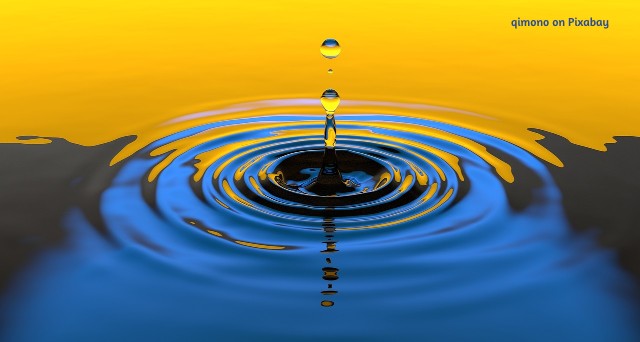How to care for yourself when you feel the world too deeply
This reflection follows my recent writing on Unconditional Love. Where that piece explored how we hold others in love, this one asks: how do we hold ourselves when we feel so deeply?
To be an empath is to feel the world in your own skin.
The sorrow of a friend, the joy of a stranger, the unspoken fear of a loved one, sometimes it arrives like a whisper, sometimes like a wave.
This sensitivity has been with me for as long as I can remember.
For years, I was told I was “too sensitive,” as if it were a flaw. My first husband accused me of overreacting. Others implied I was fragile or dramatic. Without language for what I was experiencing, I often acted out. I would cry, apologize, or wonder, “Do they hate me? Am I stupid? What’s wrong with me?”
It wasn’t until about ten years ago, when I discovered the work of Dr. Judith Orloff, that I began to understand: I am an empath. This acute sensitivity isn’t weakness. It is a way of tuning into the currents beneath the surface—a gift, though one that required care.
Friends and Feelings: Relationships Bring the Empth’s Gift Into Sharp Relief
With some friends, I feel safe to ask directly when something seems off. With Aimee, for example, I can say, “Can we talk?” and trust she’ll be honest. That clarity helps me know what is mine and what belongs to her. I don’t have to carry the weight of uncertainty.
Other friendships are different. Some people hold their emotions close until they spill out in unexpected ways later on. In those relationships, I may find myself carrying sadness or unease without understanding why. My old story of “not good enough” can rise to the surface, clashing with what I’m sensing from them. And I ask myself, Is this mine? Or is this theirs?

That question has become central to my path. Sometimes, as with a dream I had recently, I realize I was sensing another’s hesitation before I knew it consciously. Other times, I see that my own fear of rejection has colored the experience. Often, it is both. The empath feels not only the world around them, but also the echoes of their own heart.
What It Means to Be an Empath
An empath doesn’t just notice emotions—they absorb them. The joy, sorrow, or fear of another can feel as real in our own bodies as if it belonged to us.
This sensitivity is a gift. It allows for deep compassion and understanding. But without care, it can feel overwhelming, blurring the line between my feelings and someone else’s.
Caring for the Heart of an Empath
If you are an empath, here are gentle ways to care for yourself:
- Pause and Ask: When a strong emotion arises suddenly, ask: Is this mine? Or could it belong to someone else?
- Ground: Place your feet on the earth, take a slow breath, and imagine roots carrying away what isn’t yours.
- Shield with Light: Visualize a soft field of light around you, like a protective cloak. This doesn’t shut others out; it simply filters what comes in.
- Release Ritual: Place your hand over your heart and say, “I honor what I feel, and I release what is not mine to carry.” Let your exhale carry it away.
- Rest and Restore: Alone time, nature, journaling, or quiet practices help empaths reset and return home to themselves.
Planting in the Void
As an empath, I may feel what others feel, but my response is always mine to tend. When sadness arises, I can meet it not as weakness, but as grief—a sign of love in disguise.
I’ve come to see that the sadness I feel in certain relationships is not caused by anyone else. It is my response, my story, my tender heart asking to be seen. That recognition is not blame, but responsibility—the kind that empowers.
In my Sunday morning meditation circle, we gather around an imagined fire. We write words on a slip of paper—fear, shame, not-enoughness—and offer them to the flames. When the fire dies away, what remains is a fertile void. We dig our hands into the soil and plant a seed of love.
This is what it means to be an empath, too. To feel deeply is to encounter both fire and void: the ache of what is lost, the grief of what is sensed, the emptiness where trust once lived. But the void is never empty for long. It is soil. It is waiting.
And I choose to plant love there.
Sacred Closing
You are not broken for being sensitive.
You are not “too much.”
You are simply tuned to the quiet songs most others never hear.
And in the end, it is not about whether a feeling is “mine” or “theirs.”
It is about what I choose to do with it,
And my choice is always love.

